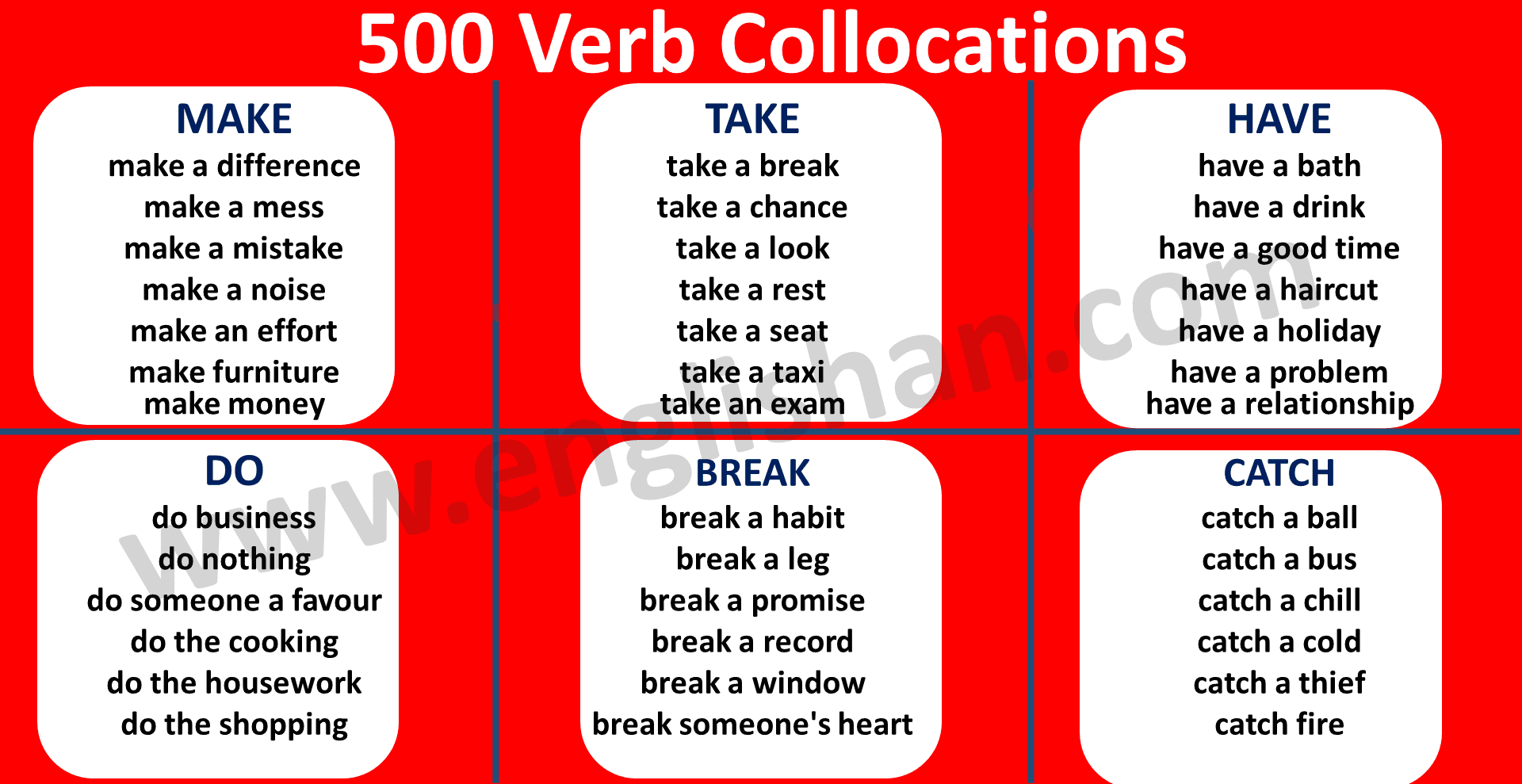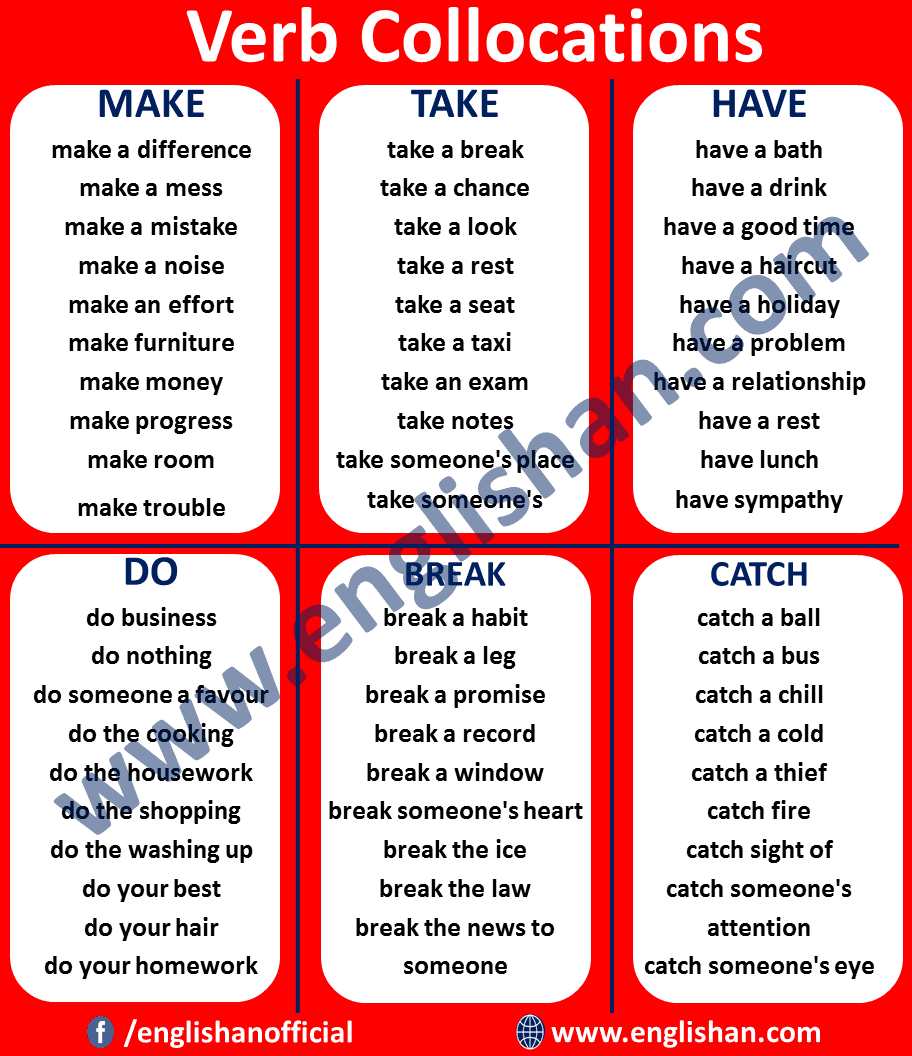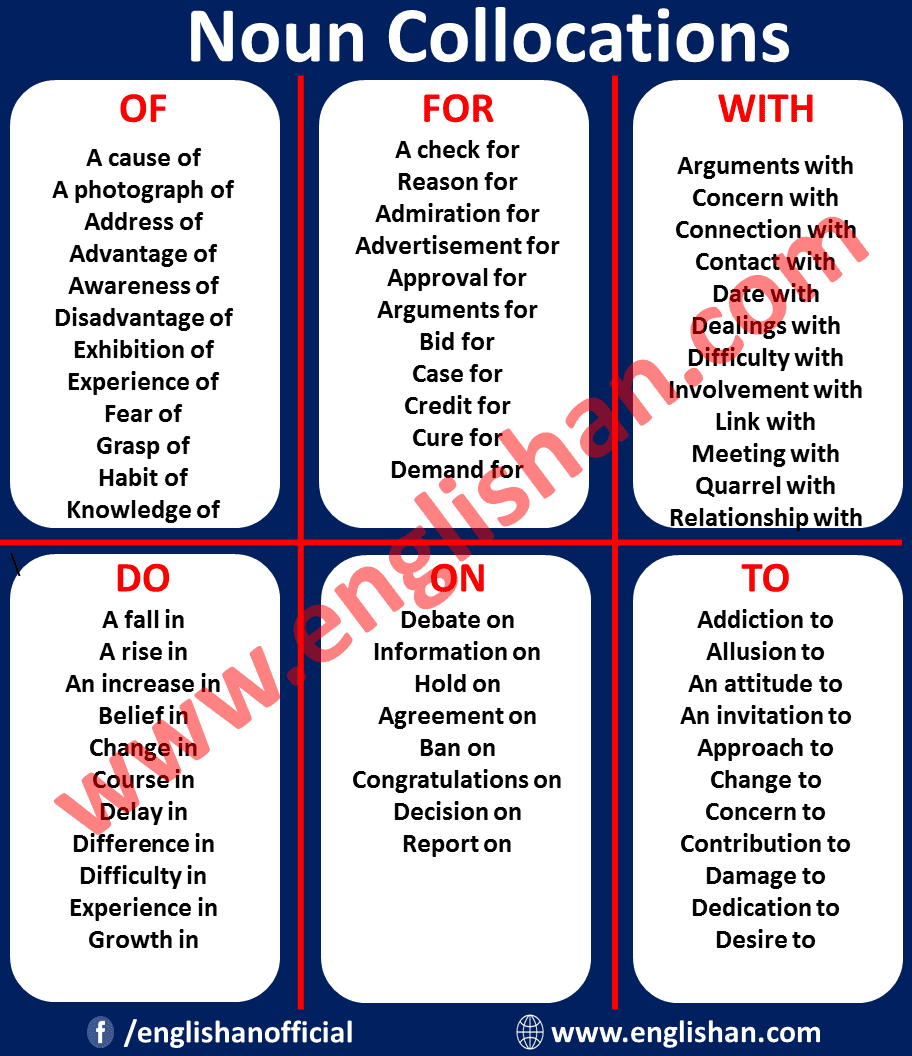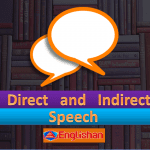Collocations
Collocations are a pair or group of words that are often used together in combination in the English language. Using collocations in speech or writing makes the language seem more natural and fluid.
However, native speakers of the English language seem to know and use collocations naturally and habitually, whereas, non-native speakers must be careful in its usage The slightest difference in a collocation can change the sense of the entire sentence. No word in a collocation can be replaced with another synonym, or it will modify the meaning and gist of what is being said.
Example:
| Correct Collocation | Incorrect Collocation |
| fast food | quick man |
| tall man | high man |
| great man | big man |
| strong tea | powerful tea |
| burst into tears | blow up into tears |
It should also be remembered that certain collocations are always used in particular circumstances and not used elsewhere, as they do not seem natural otherwise.
| Correct Collocation | Incorrect Collocation |
| excruciating pain | excruciating joy |
| feel free | feel bound |
| catch a cold | catch a-hot |
The best way to learn correct collocations is to read and listen to native writers and speakers use them.
Collocations can begin with adverbs, adjectives, nouns, or verbs. Here are some common everyday collocations that begin with verbs.
| Verb | Collocations |
| Make | make a mistake, make a promise, make a wish, make a difference, make one’s bed |
| Catch | catch a bus, catch a cold, catch a thief, catch a ball, catch lire, catch someone’s attention |
| Pay | pay attention, pay the price, pay a visit, pay one’s
respects |
| Save | save money, save energy, save time |
| Take | take a bus (or a train, flight, taxi), take a look, take a break, take a picture |
| Keep | keep calm, keep in touch, keep quiet, keep the change, keep a promise |
| Get | get ready, get on, get off, get lost, get angry, get in,
get out |
| Do | do the dishes, do the laundry, do one’s hair, do one’s homework, do a favour |
| Feel | feel free, feel comfortable, feel happy (or proud, nervous, sleepy) |
| Have | have a bath, have faith, have breakfast (or lunch, dinner), have fun, have a party, have an excuse |
here are some common everyday collocations that begin with adjective:
| Adjective | Collocations |
| Deep | deep thought, deep sleep, deep trouble |
| Heavy | heavy rain (or snow), heavy traffic, heavy smoker, heavy duty |
| High (or Low) | high (or low) cost, self-esteem, energy, expectations |
| Strong | strong willed, strong smell, strong taste, strong tea (or coffee), strong feeling |
| Tall | tali order, tall building, tall man, tall glass |
Care should be taken to always use the right collocation in the right situation. If the collocation is used correctly but out of place, it is going to seem as strange as if it were used incorrectly.
The use of the right collocation in the right situation can only come from practice.
Use of a few collocations in sentences;
- I will not give you breakfast until you make your bed.
- Don’t disturb John. He seems to be in a deep thought.
- Please feel free to contact me if you have any further queries.
- He married Sharon against everyone’s advice and now he’s paying the price.


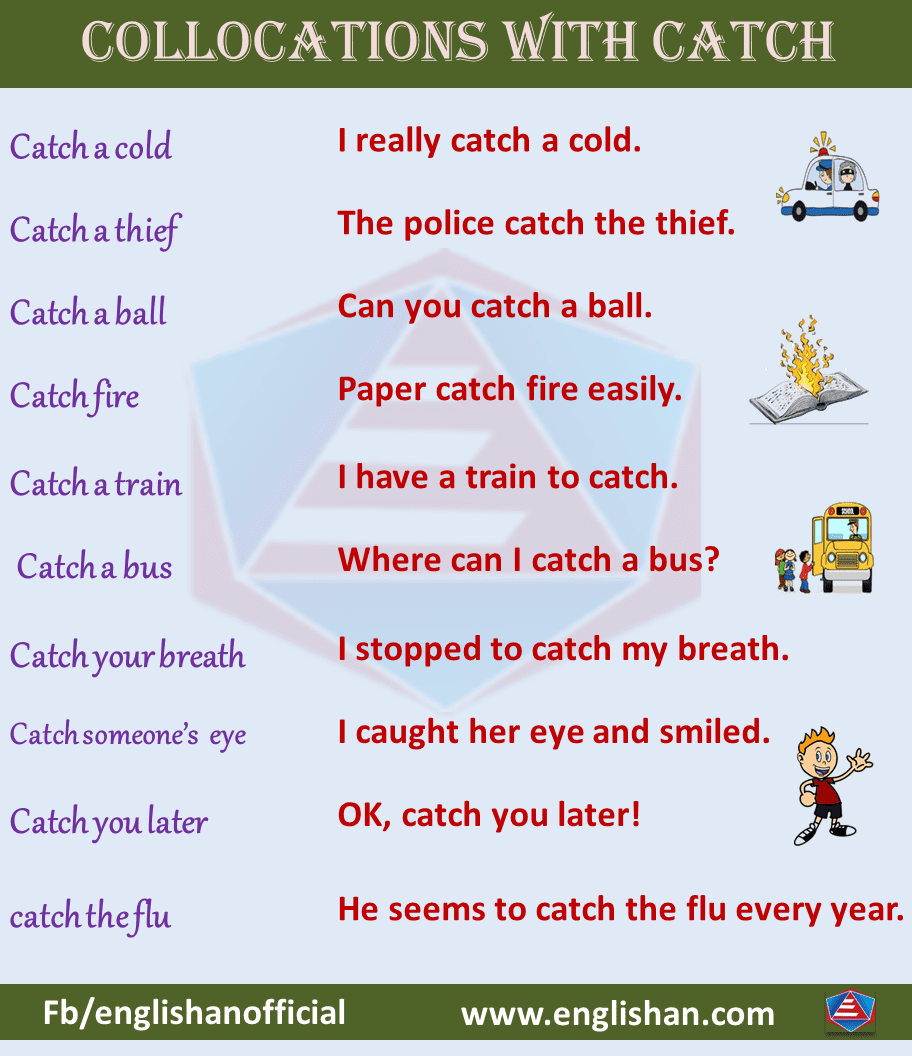
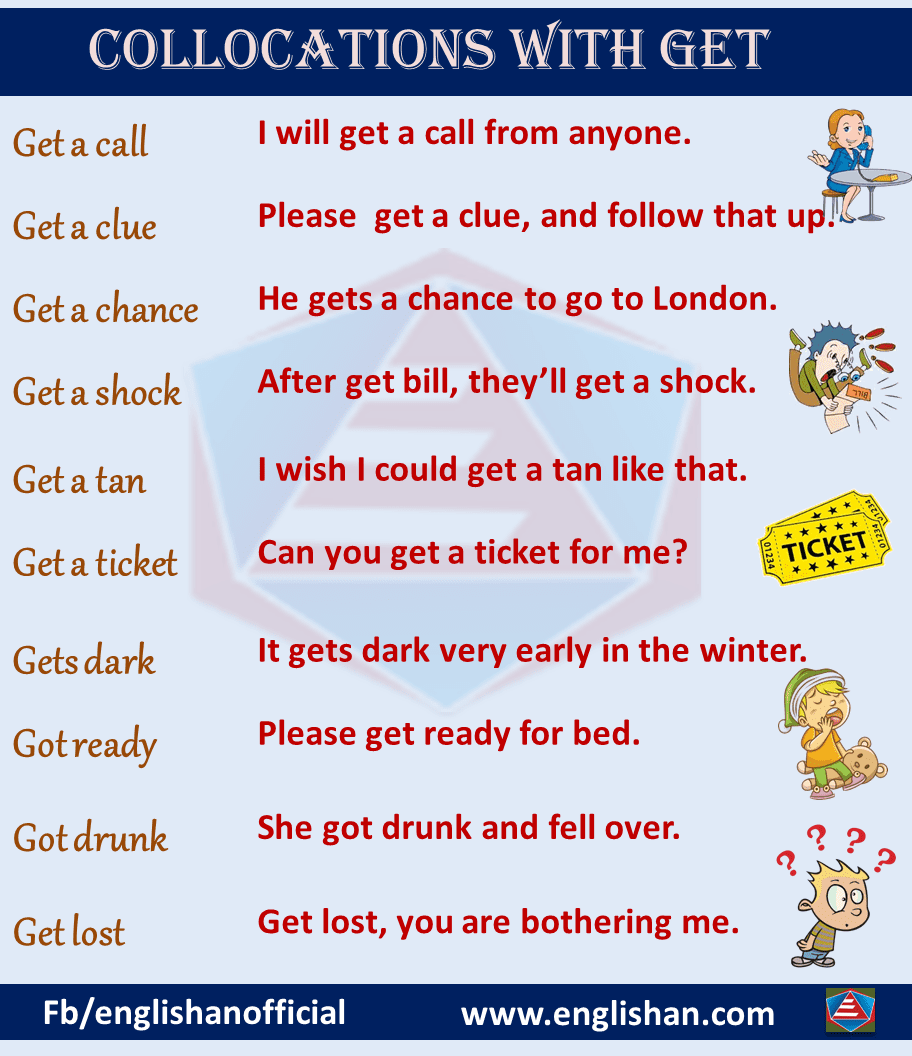
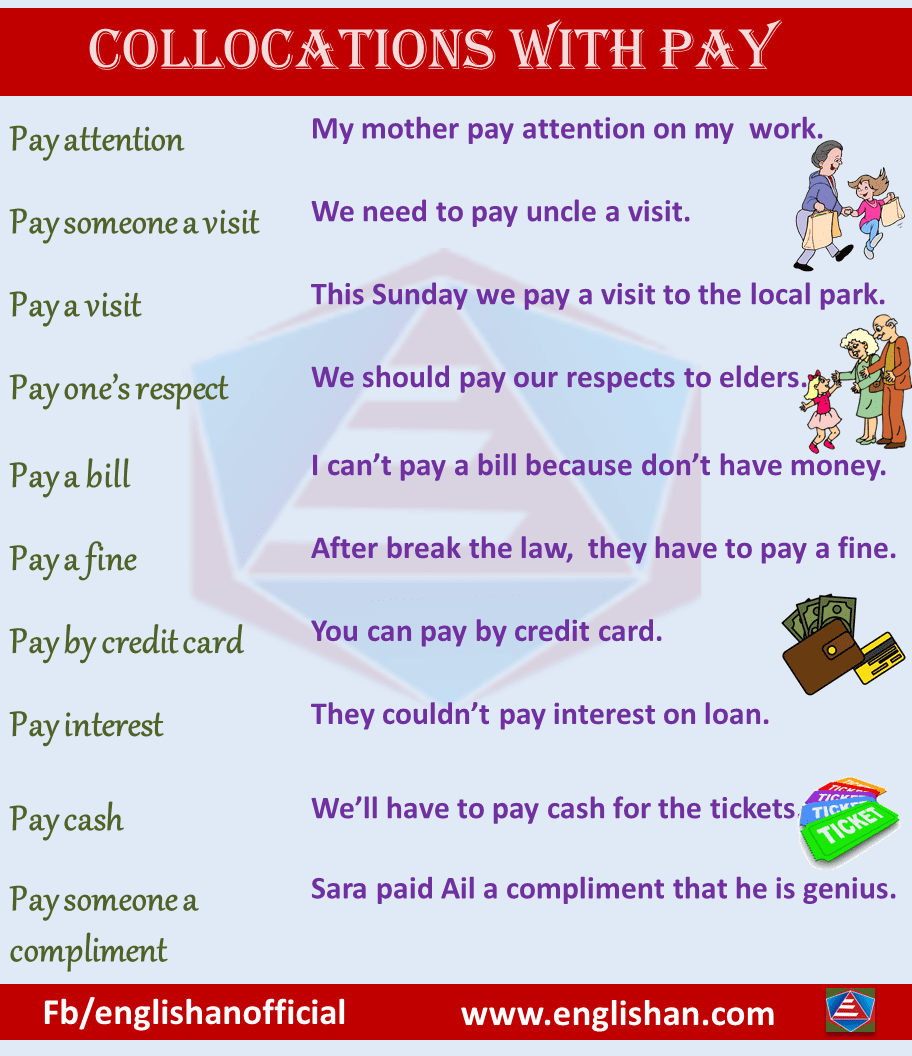
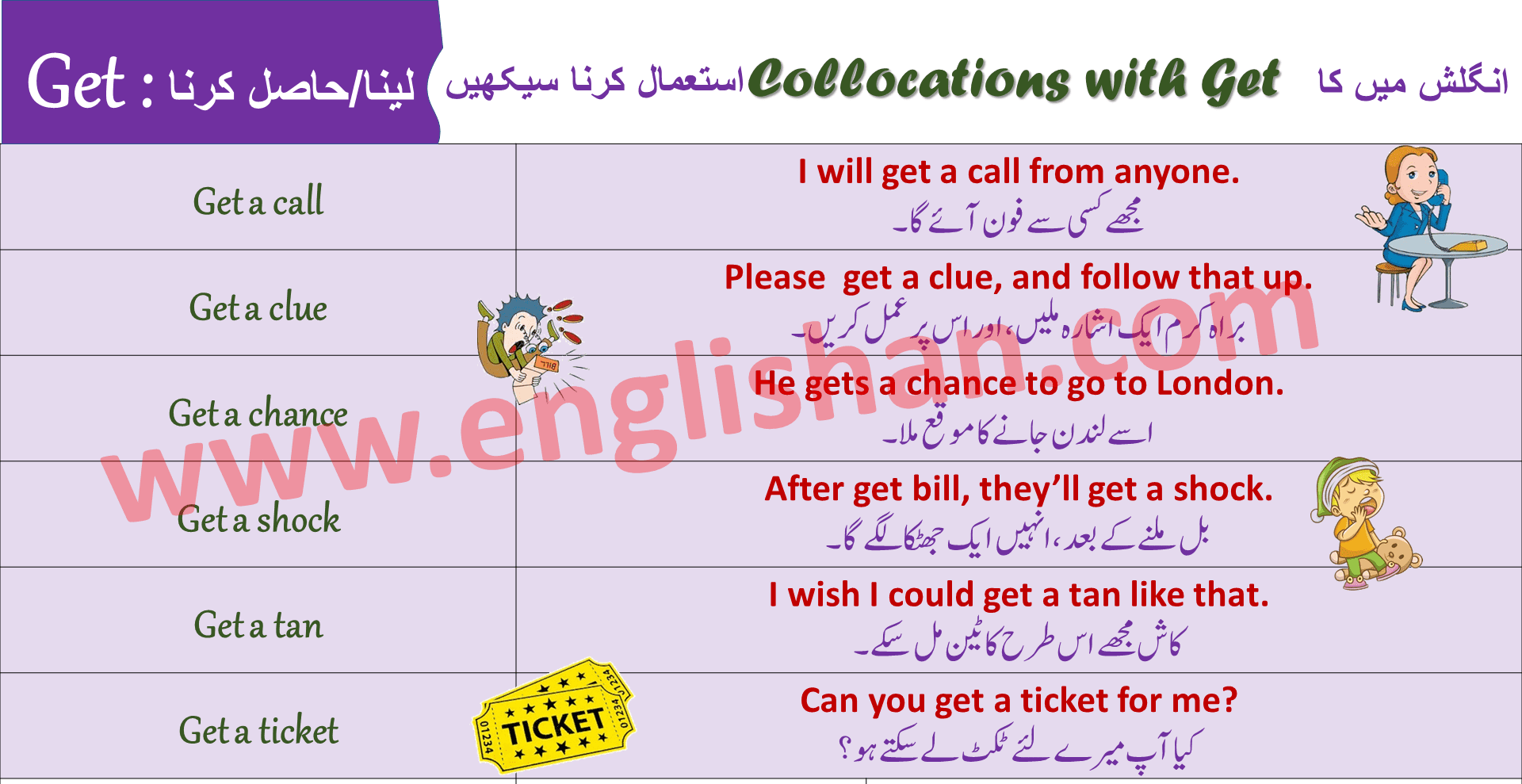
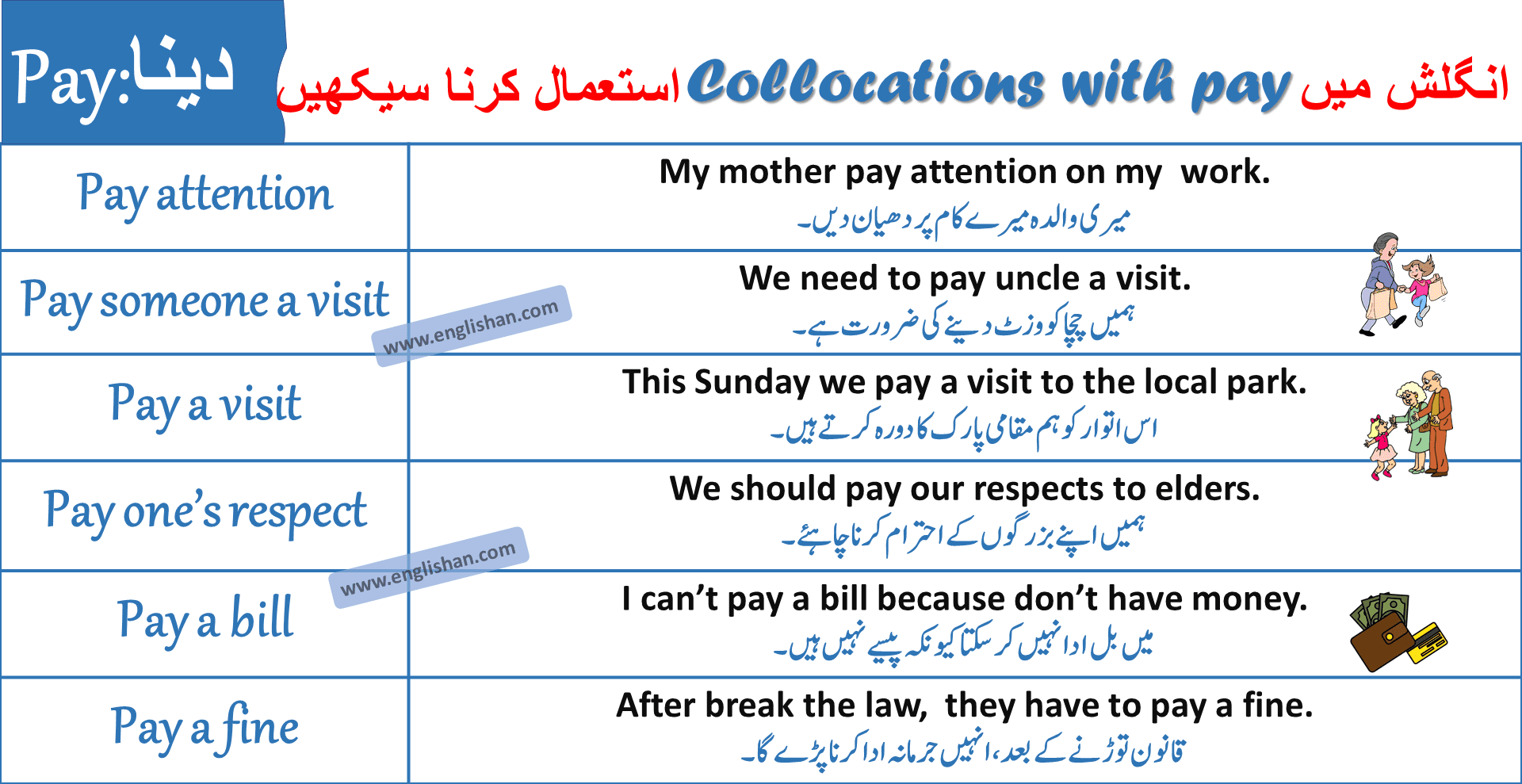
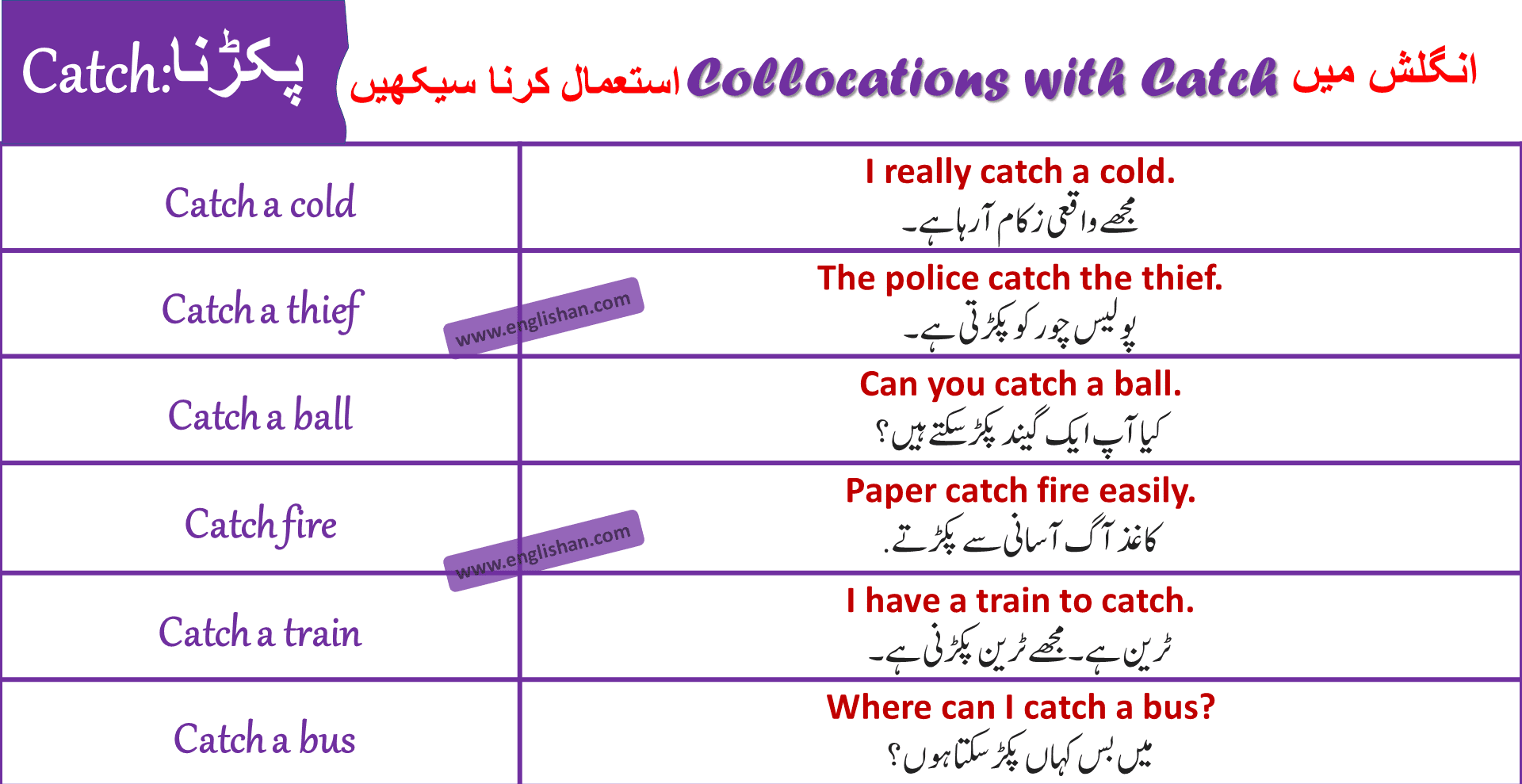
Click for Download PDF File

